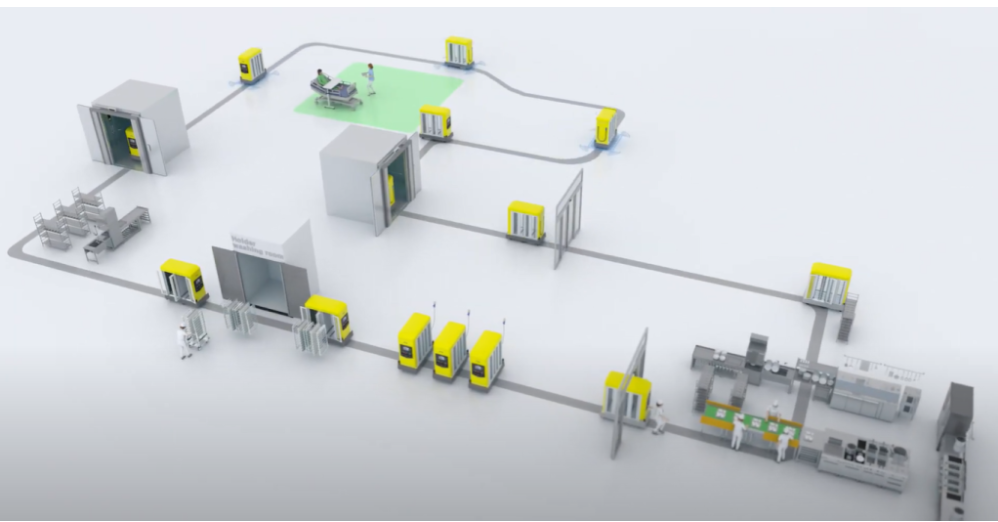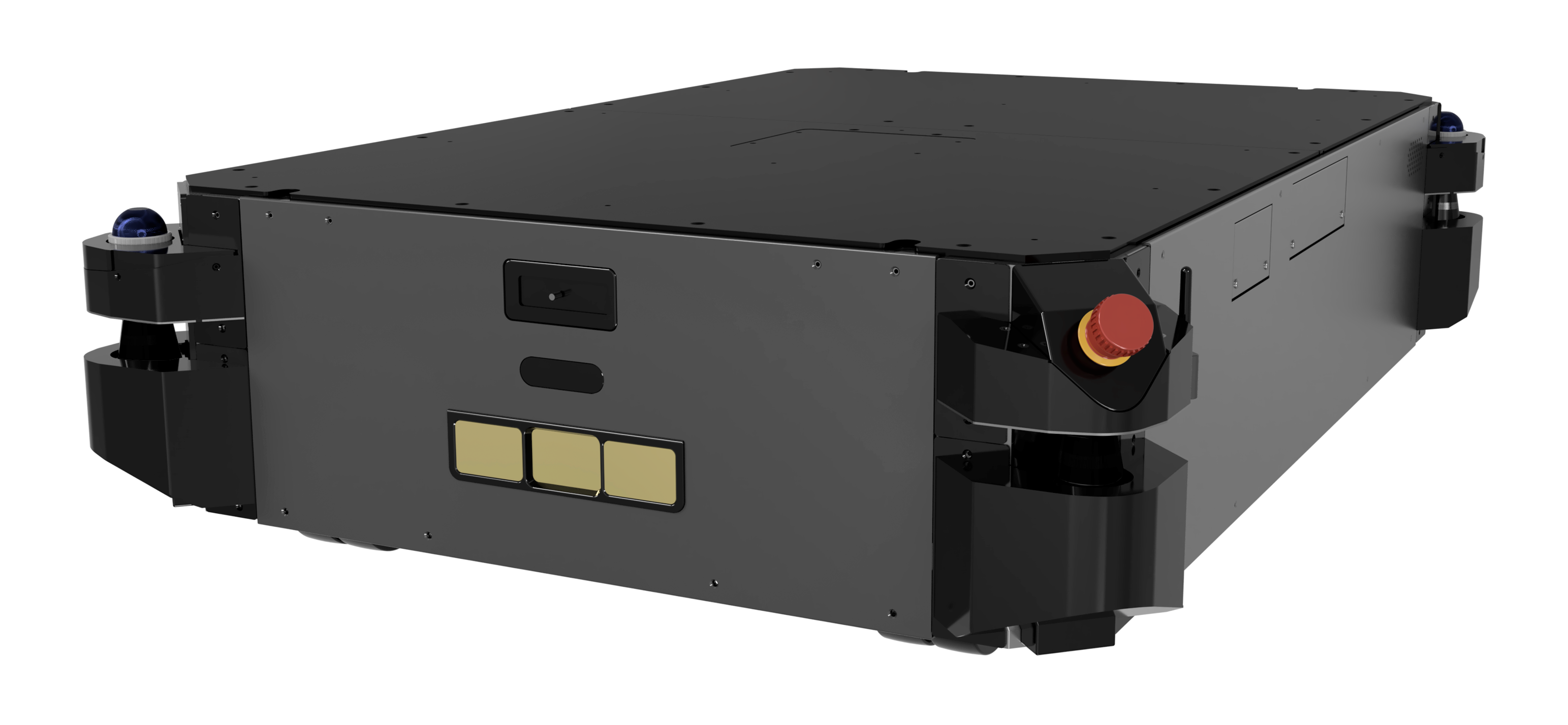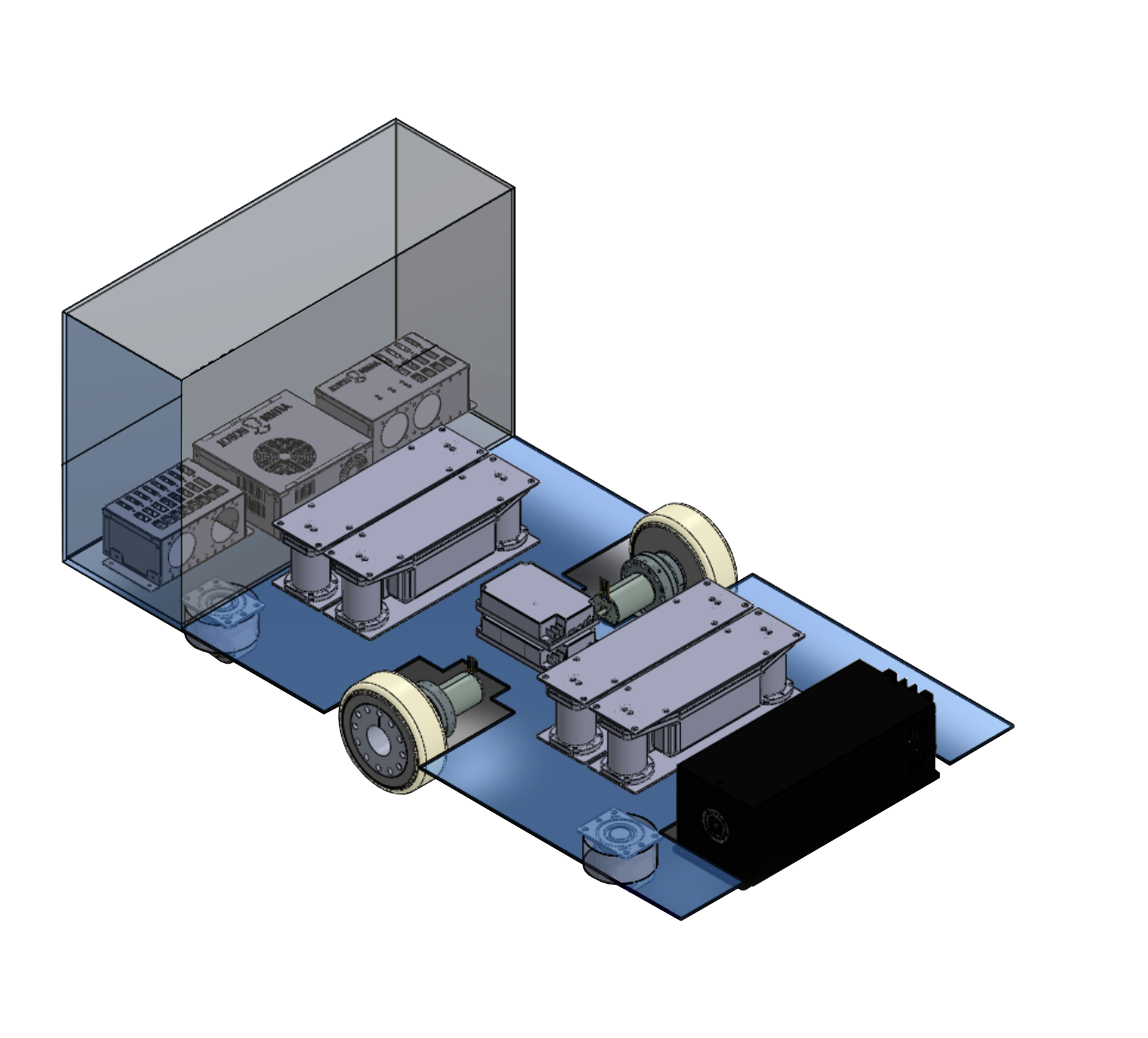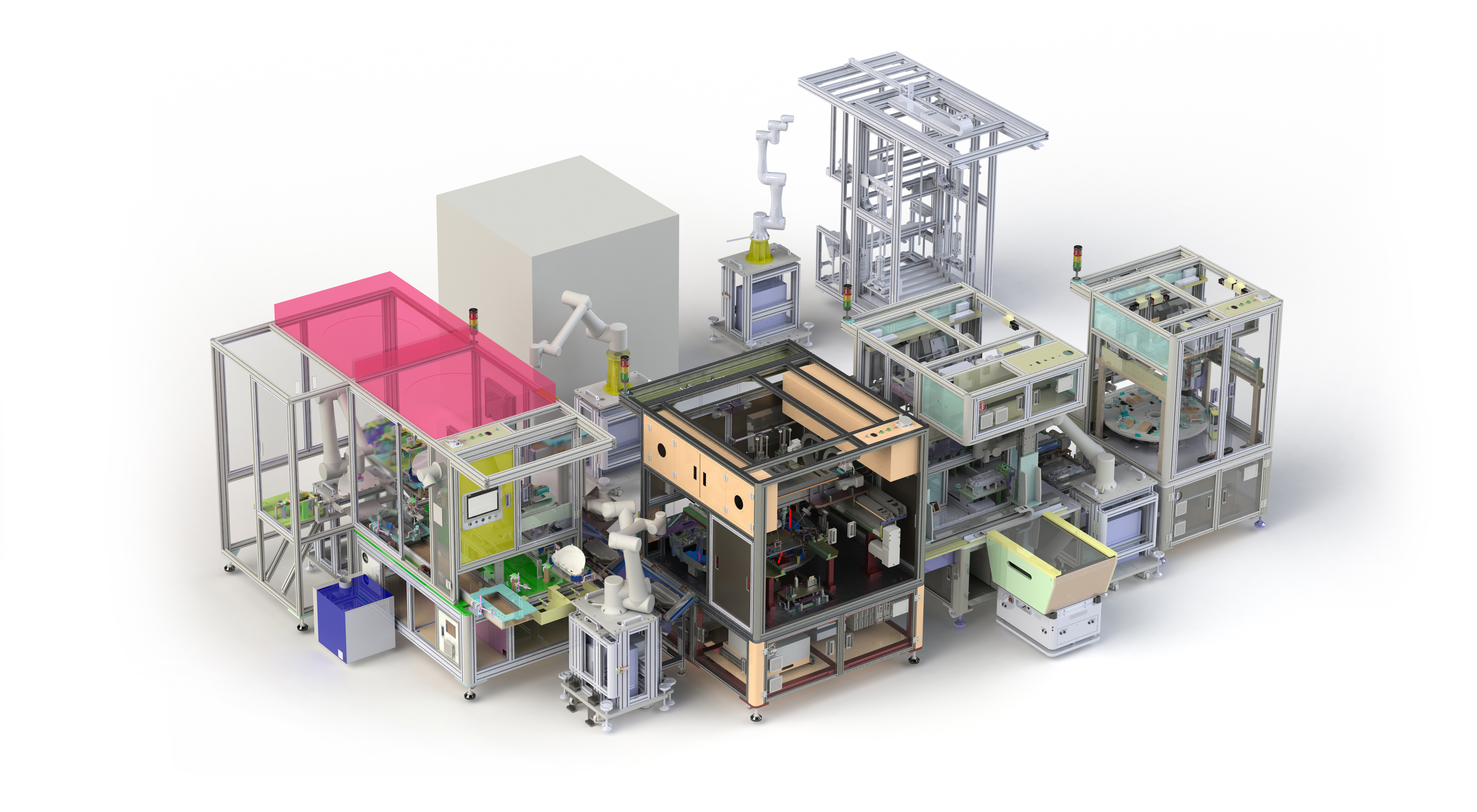Introduction
An injection molding plastics company that makes such products as packaging containers and trays was looking for ways to improve efficiency. The Seoul, South Korea-based company ships its products to companies around the world and, until recently, relied on human workers to move products from the production line to the packaging area.
The Problem:
While the company manufactures modern products, its production processes have not changed much since it began nearly 20 years ago. It still relied on a conveyor system to move products through the manufacturing facility and required human workers to remove products from the line and transport them to the packaging area.
A factory manager says the company realized it was not being as efficient as it could be. It began looking for ways to improve worker productivity while reducing fatigue. “We wanted to upgrade our working environment and had to weigh that benefit against the initial investment cost,” he says.

The solution:
Because YUJIN ROBOT has been at the forefront of Korea’s robotics industry for more than 30 years, the company was confident in turning to Yujin for solutions: “We felt their technology capability was the best compared to competitors,” the factory manager explains, noting that YUJIN develops its own hardware and software and was able to provide a complete solution that considered both factory and logistics automation.

YUJIN ROBOT simplified processes by integrating its GoCart autonomous mobile robot (AMR), eliminating the need for human workers to pick up and wrap products manually. It was able to automate the delivery of injection molded containers using the GoCart, and it offers loading and unloading processes that are fulling customized to meet the facility’s specific needs and layout. Such customization was a tremendous selling point to the company, as was the ability for the AMR to park precisely on the designated charging station.

The Results:
Three months after adopting the AMR platform, the company has been able to reassign human workers to other tasks and has seen productivity go up by about 20%.
“We can allocate the work more efficiently and reduce workers’ fatigue by minimizing simple and repeated tasks,” says the factory manager. “It has improved our production and stability, and the AMR platform works with other human workers and guarantees safety.”
Additionally, it can now run operations around the clock instead of being limited by eight-hour shifts.















